Birthday of American Psychologist A. H. Maslow
Born on 1 April 1908, Abraham Maslow was one of the most influential psychologists of 20th-century America. He developed the well-known theory of Maslow’s Hierarchy of Needs, essentially outlining the level of priorities of basic needs of humankind and the healthy progression of the same. Maslow was the eldest of his siblings and had a predisposition for knowledge and reading as a channel of distraction from his dismal home. He studied psychology at the University of Wisconsin and started teaching at Brooklyn College thereafter. His published works include Motivation and Personality (1954) and Toward a Psychology of Being (1962).
Maslow worked as a psychology professor in various establishments, such as Brandeis University, New School for Social Research, and Columbia University. He started his theory development by conducting behavioral analyses and going a long way toward humanistic psychology, peak experiences, and self-actualization. He focused on the positive aspects of human psychology, and defined self-actualization as an ongoing process rather than a destination. Maslow delineated a peak experience with three features – fulfillment, significance, and spirituality, linking the same with self-actualization. His theories influence the view of psychology today as well.
Osho talks about Maslow and self-actualization, he says, “A kind of rebirth is needed. The ordinary birth is the birth of the bodymind mechanism, but your spirit is only a potential — it has to be actualized. Abraham Maslow has called this process self-actualization. Gautam Buddha would call the same process “no-self actualization.” Abraham Maslow has no idea of the ultimate; he is thinking about it, speculating about it. He has stumbled upon a certain truth, but he does not know how to express it. He has not experienced it himself; it is only an intellectual understanding, hence he calls it “self-actualization.”
Osho Says….
IS SELF-ACTUALIZATION A BASIC NEED?
There are many questions. The first: IS SELF-ACTUALIZATION A BASIC NEED OF MAN? First, try to understand what is meant by self-actualization. A. H. Maslow has used this term “self-actualization.” Man is born as potentiality. He is not really actual — just potential. Man is born as a possibility, not as an actuality. He may become something; he may attain actualization of his potentiality or he may not attain. The opportunity may be used or it may not be used. And nature is not forcing you to become actual. You are free. You can choose to become actual; you can choose not to do anything about it. Man is born as a seed. Thus, no man is born fulfilled — just with the possibility of fulfillment.
If that is the case — and that is the case — then self-actualization becomes a basic need. Because unless you are fulfilled, unless you become what you can be or what you are meant to be, unless your destiny is fulfilled, unless you actually attain, unless your seed becomes a fulfilled tree, you will feel that you are missing something. And everyone is feeling, that he is missing something. That feeling of missing is really because of this, that you are not yet actual. It is not really that you are missing riches or position, prestige or power. Even if you get whatsoever you demand — riches, power, prestige, anything — you will feel this constant sense of something missing within you, because this something missing is not related with anything outward. It is related with your inner growth. Unless you become fulfilled, unless you come to a realization, a flowering, unless you come to an inner satisfaction in which you feel, “Now this is what I was meant to be,” this sense of something missing will be felt. And you cannot destroy this feeling of something missing by anything else.
So self-actualization means a person has become what he was to become. He was born as a seed and now he has flowered. He has come to the complete growth, an inner growth, to the inner end. The moment you feel that all your potentialities have become actual, you will feel the peak of life, of love, of existence itself. Abraham Maslow, who has used this term “self-actualization,” has also coined another term: “peak experience.” When one attains to oneself, he reaches a peak — a peak of bliss. Then there is no hankering after anything. He is totally content with himself. Now nothing is lacking; there is no desire, no demand, no movement. Whatsoever he is, he is totally content with himself. Self-actualization becomes a peak experience, and only a self-actualized person can attain peak experiences. Then whatsoever he touches, whatsoever he is doing or not doing — even just existing — is a peak experience for him; just to be is blissful. Then bliss is not concerned with anything outside, it is just a by-product of the inner growth.
A buddha is a self-actualized person. That is why we picture Buddha, Mahavira and others — why we have made sculptures, pictures, depictions of them — sitting on a fully blossomed lotus. That fully blossomed lotus is the peak of flowering inside. Inside they have flowered and have become fully blossomed. That inner flowering gives a radiance, a constant showering of bliss from them. All those who come even within their shadows, all those who come near them feel a silent milieu around them. There is an interesting story about Mahavira. It is a myth, but myths are beautiful and they say much which cannot be said otherwise. It is reported that when Mahavira would move, all around him, in an area of about twenty-four miles, all the flowers would bloom. Even if it was not the season for the flowers, they would bloom. This is simply a poetic expression, but even if one was not self-actualized, if one were to come in contact with Mahavira his flowering would become infectious, and one would feel an inner flowering in oneself also. Even if it was not the right season for a person, even if he was not ready, he would reflect, he would feel an echo. If Mahavira was near someone, that person would feel an echo within himself, and he would have a glimpse of what he could be.
Self-actualization is the basic need. And when I say basic, I mean that if all your needs are fulfilled, all except self-realization, self-actualization, you will feel unfulfilled. In fact, if self-actualization happens and nothing else is fulfilled, still you will feel a deep, total fulfillment. That is why Buddha was a beggar, but yet an emperor. Buddha came to Kashi when he became enlightened. The king of Kashi came to see him and he asked, “I do not see that you have anything, you are just a beggar, yet I feel myself a beggar in comparison to you. You do not have anything, but the way you walk, the way you look, the way you laugh makes it seem as if the whole world is your kingdom. And you have nothing visible — nothing! So where is the secret of your power? You look like an emperor.” Really, no emperor has ever looked like that — as if the whole world belongs to him. “You are the king, but where is your power, the source?”
So Buddha said, “It is in me. My power, my source of power, whatsoever you feel around me is really within me. I do not have anything except myself, but it is enough. I am fulfilled; now I do not desire anything. I have become desireless.”
Really, a self-actualized person will become desireless. Remember this. Ordinarily we say that if you become desireless, you will know yourself. The contrary is more true: if you know yourself, you will become desireless. And the emphasis of tantra is not on being desireless, but on becoming self-actualized. Then desirelessness follows. Desire means you are not fulfilled within, you are missing something so you hanker after it.
You go on, from one desire to another, in search of fulfillment. That search never ends because one desire creates another desire. Really, one desire creates ten desires. If you go in search of a desireless state of bliss through desires, you will never reach. But if you try something else — methods of self-actualization, methods of realizing your inner potentiality, of making them actual — then the more you will become actual the less and less desires will be felt, because really, they are felt only because you are empty inside. When you are not empty within, desiring ceases.
What to do about self-actualization? Two things have to be understood. One: self-actualization doesn’t mean that if you become a great painter or a great musician or a great poet you will be self-actualized. Of course, a part of you will be actualized, and even that gives much contentment. If you have a potentiality of being a good musician, and if you fulfill it and you become a musician, a part of you will be fulfilled — but not the total. The remaining humanity within you will remain unfulfilled. You will be lopsided. One part will have grown, and the remaining will have stayed just like a stone hanging around your neck. Look at a poet. When he is in his poetic mood he looks like a buddha; he forgets himself completely. The ordinary man in the poetic mood is as if he is no more there. So when a poet is in his mood, he has a peak — a partial peak. And sometimes poets have glimpses which are only possible with enlightened, buddha-like minds. A poet can speak like a buddha. For example, Khalil Gibran speaks like a buddha but he is not a buddha. He is a poet — a great poet.
So if you see Khalil Gibran through his poetry, he looks like Buddha, Christ or Krishna. But if you go and meet the man Khalil Gibran, he is just ordinary. He talks about love so beautifully — even a buddha may not talk so beautifully. But a buddha knows love with his total being. Khalil Gibran knows love in his poetic flight. When he is on his poetic flight, he has glimpses of love — beautiful glimpses. He expresses them with rare insight. But if you go and see the real Khalil Gibran, the man, you will feel a disparity. The poet and the man are far apart. The poet seems to be something which happens to this man sometimes, but this man is not the poet. That is why poets feel that when they are creating poetry someone else is creating; they are not creating. They feel as if they have become instruments of some other energy, some other force. They are no more. This feeling comes because, really, their totality is not actualized — only a part of it is, a fragment.
You have not touched the sky. Only one of your fingers has touched the sky, and you remain rooted on the earth. Sometimes you jump, and for a moment you are not on the earth; you have deceived gravity. But the next moment you are on the earth again. When a poet is feeling fulfilled, he will have glimpses — partial glimpses. When a musician is feeling fulfilled, he will have partial glimpses. It is said of Beethoven that when he was on the stage he was a different man, altogether different. Goethe has said that when Beethoven was on stage directing his group, his orchestra, he looked like a god. It could not be said that he was an ordinary man. He was not a man at all; he was superhuman. The way he looked, the way he raised his hands, was all superhuman. But when he came back from the stage he was just an ordinary man. The man on the stage seemed to be possessed by something else, as if Beethoven was no more there and some other force had entered into him. Back down from the stage he was again Beethoven, the man.
Because of this, poets, musicians, great artists, creative people are more tense — because they have two types of being. Ordinary man is not so tense because he always lives in one: he lives on the earth. But poets, musicians, great artists jump; they go beyond gravity. In certain moments they are not on this earth, they are not part of humanity. They become part of the buddha world — the land of the buddhas. Then again they are back here. They have two points of existence; their personalities are split. So every creative artist, every great artist is in a certain way insane. The tension is so much! The rift, the gap between these two types of existences is so great — unbridgeably great. Sometimes he is just an ordinary man; sometimes he becomes buddha-like. Between these two points he is divided, but he has glimpses.
When I say self-actualization, I do not mean that you should become a great poet or you should become a great musician. I mean that you should become a total man. I do not say a great man because a great man is always partial. Greatness in anything is always partial. One moves and moves and moves in one direction, and in all other dimensions, all other directions, one remains the same — one becomes lopsided. When I say become a total man, I do not mean become a great man. I mean create a balance, be centered, be fulfilled as a man — not as a musician, not as a poet, not as an artist, but fulfilled as a man.
What does it mean to be fulfilled as a man? A great poet is a great poet because of great poetry. A great musician is great because of great music. A great man is a great man because of certain things he has done — he may be a great hero. A great man in any direction is partial. Greatness is partial, fragmentary. That is why great men have to face more anguish than ordinary men.
What is a total man? What is meant by being a whole man, a total man? It means, firstly, be centered; do not exist without a center. This moment you are something, the next moment something else. People come to me and I generally ask them, “Where do you feel your center — in the heart, in the mind, in the navel, where? In the sex center? Where? Where do you feel your center?” Generally they say, “Sometimes I feel it in the head, sometimes in the heart, sometimes I do not feel it at all.” So I tell them to close their eyes before me and feel it just now. In the majority of cases this happens: they say, “Just now, for a moment, I feel that I am centered in the head.” But the next moment they are not there. They say, “I am in the heart.” And the next moment the center has slipped, it is somewhere else, at the sex center or somewhere else.
Really, you are not centered; you are only momentarily centered. Each moment has its own center, so you go on shifting. When mind is functioning you feel that the head is the center. When you are in love, you feel it is the heart. When you are not doing anything particularly, you are confused — you cannot find out where the center is, because you can find this out only when you are working, doing something. Then a particular part of the body becomes the center. But YOU are not centered. If you are not doing anything, you cannot find where your center of being is.
A total man is centered. Whatsoever he is doing, he remains in the center. If his mind is functioning, he is thinking, thinking goes on in the head but he remains centered in the navel. The center is never missed. He uses the head, but he never moves to the head. He uses the heart, but he never moves to the heart. All these things become instruments, and he remains centered. Secondly, he is balanced. Of course, when one is centered one is balanced. His life is a deep balance. He is never one-sided, he is never at any extreme — he remains in the middle. Buddha has called this the middle path. He remains always in the middle.
A man who is not centered will always move to the extreme. When he eats he will eat much, he will overeat, or he can fast, but right eating is impossible for him. Fasting is easy, overeating is okay. He can be in the world, committed, involved, or he can renounce the world — but he can never be balanced. He can never remain in the middle, because if you are not centered you do not know what middle means. A person who is centered is always in the middle in everything, never at any extreme. Buddha says his eating is right eating; it is neither overeating, nor fasting. His labor is right labor — never too much, never too little. Whatsoever he is, he is always balanced.
First thing: a self-actualized person will be centered. Second thing: he will be balanced. Thirdly: if these two things happen — centering, balance — many things will follow. He will always be at ease. Whatsoever the situation, the at-easeness will not be lost. I say whatsoever the situation — unconditionally, the at-easeness will not be lost, because one who is at the center is always at ease. Even if death comes, he will be at ease.
He will receive death as one receives any other guest. If misery comes, he will receive it. Whatsoever happens, it cannot dislodge him from his center. That at-easeness is also a by-product of being centered. For such a man, nothing is trivial, nothing is great; everything becomes sacred, beautiful, holy — everything! Whatsoever he is doing, whatsoever, it is of ultimate concern — as if of ultimate concern. Nothing is trivial. He will not say, “This is trivial, this is great.” Really, nothing is great, nor is anything small and trivial. The touch of the man is significant. A self-actualized person, a balanced, centered person, changes everything. The very touch makes it great.
If you observe a buddha, you will see that he walks and he loves walking. If you go to Bodhgaya where Buddha attained enlightenment, to the bank of the Niranjana — to the place where he was sitting under the Bodhi tree — you will see that the place of his steps has been marked. He would meditate for one hour, then he would walk around. In Buddhist terminology this is called CHAKRAMAN. He would sit under the Bodhi tree, then he would walk. But he would walk with a serene attitude, as if in meditation. Someone asked Buddha, “Why do you do this? Sometimes you sit with closed eyes and meditate, then you walk.” Buddha said, “Sitting in order to be silent is easy, so I walk. But I carry the same silence within. I sit, but inside I am the same — silent. I walk, but inside I am the same — silent.”…
So thirdly, the self-actualized man is at ease. Life and death are the same; bliss and misery are the same. Nothing disturbs him, nothing dislocates him from his home, from his centeredness. To such a man you cannot add anything. You cannot take anything out of him, you cannot add anything to him — he is fulfilled. His every breath is a fulfilled breath, silent, blissful. He has attained. He has attained to existence, to being; he has flowered as a total man. This is not a partial flowering. Buddha is not a great poet. Of course, whatsoever he says is poetry. He is not a poet at all, but even when he moves, walks, it is poetry. He is not a painter, but whenever he speaks, whatsoever he says becomes a painting. He is not a musician, but his whole being is music par excellence. The man as a totality has attained. So now, whatsoever he is doing or not doing… when he is sitting in silence, not doing anything, even in silence his presence works, creates; it becomes creative.
Tantra is concerned not with any partial growth, it is concerned with you as a total being. So three things are basic: you must be centered, rooted, and balanced; that is, always in the middle — of course, without any effort. If there is effort you are not balanced. And you must be at ease — at ease in the universe, at home in the existence, and then many things follow. This is a basic need, because unless this need is fulfilled you are a man only in name. You are a man as a possibility, you are not actually a man. You can be, you have the potentiality, but the potentiality has to be made actual.
Source:
This is an excerpt from the transcript of a public discourse by Osho in Buddha Hall, Shree Rajneesh Ashram, Pune.
Discourse Series: Vigyan Bhairav Tantra, Vol 1
Chapter #10
Chapter title: Fulfillment through becoming centered
13 November 1972 pm in Woodlands, Bombay
References:
Osho has spoken on notable Psychologists and philosophers like Adler, Jung, Sigmund Freud, Assagioli, Wilhelm Reich, Aristotle, Berkeley, Confucius, Descartes, Feuerbach, Hegel, Heidegger, Heraclitus, Huxley, Jaspers, Kant, Kierkegaard, Laing, Marx, Moore, Nietzsche, Plato, Pythagoras, Russell, Sartre, Socrates, Wittgenstein and many others in His discourses. Some of these can be referred to in the following books/discourses:
- The Hidden Splendour
- The Wild Geese and the Water
- This, This, A Thousand Times This: The Very Essence of Zen
- Nirvana: The Last Nightmare
- Beyond Enlightenment
- Beyond Psychology
- Dang Dang Doko Dang
- The Discipline of Transcendence
- The Dhammapada: The Way of the Buddha
- From Bondage to Freedom
- From Darkness to Light
- From Ignorance to Innocence
- The Secret of Secrets, Vol 1
- From Personality to Individuality
- I Celebrate Myself: God Is No Where, Life Is Now Here
- Yoga: The Alpha and the Omega, Vol 4
- Zen: The Path of Paradox, Vol 1

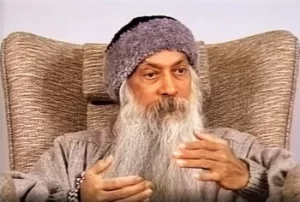
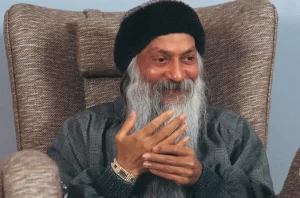


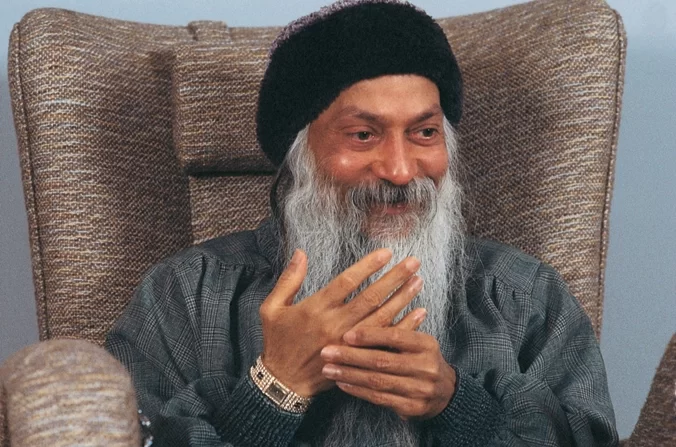
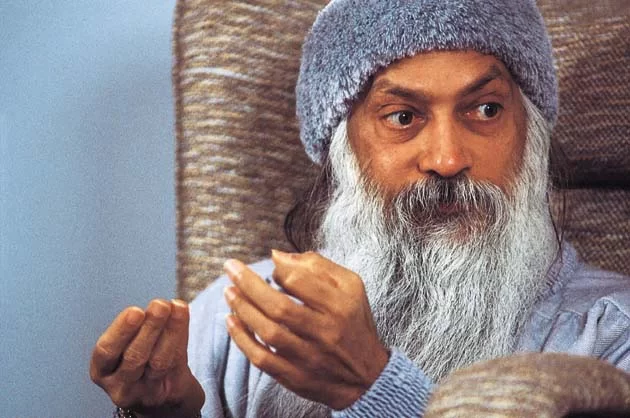

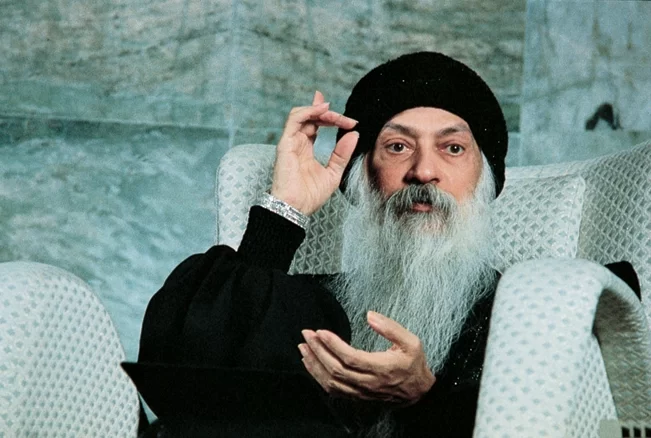



One Comment
Love you Osho ❤️❤️❤️💟
🙇🙏🙇